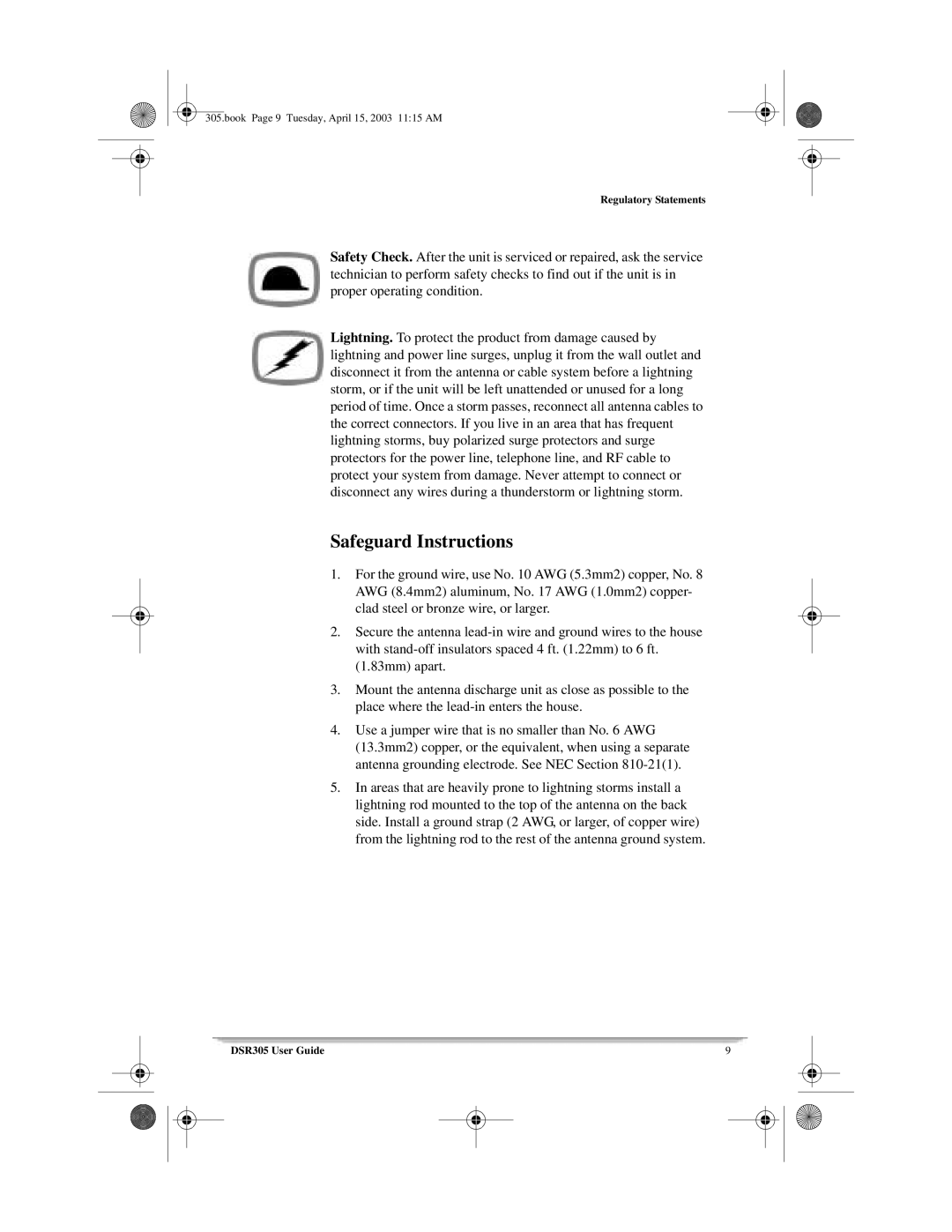
305.book Page 9 Tuesday, April 15, 2003 11:15 AM
Regulatory Statements
Safety Check. After the unit is serviced or repaired, ask the service technician to perform safety checks to find out if the unit is in proper operating condition.
Lightning. To protect the product from damage caused by lightning and power line surges, unplug it from the wall outlet and disconnect it from the antenna or cable system before a lightning storm, or if the unit will be left unattended or unused for a long period of time. Once a storm passes, reconnect all antenna cables to the correct connectors. If you live in an area that has frequent lightning storms, buy polarized surge protectors and surge protectors for the power line, telephone line, and RF cable to protect your system from damage. Never attempt to connect or disconnect any wires during a thunderstorm or lightning storm.
Safeguard Instructions
1.For the ground wire, use No. 10 AWG (5.3mm2) copper, No. 8 AWG (8.4mm2) aluminum, No. 17 AWG (1.0mm2) copper- clad steel or bronze wire, or larger.
2.Secure the antenna
3.Mount the antenna discharge unit as close as possible to the place where the
4.Use a jumper wire that is no smaller than No. 6 AWG (13.3mm2) copper, or the equivalent, when using a separate antenna grounding electrode. See NEC Section
5.In areas that are heavily prone to lightning storms install a lightning rod mounted to the top of the antenna on the back side. Install a ground strap (2 AWG, or larger, of copper wire) from the lightning rod to the rest of the antenna ground system.
DSR305 User Guide | 9 |
| |||
|
|
|
|
|
|
|
|
|
|
|
|
|
|
|
|
|
|
